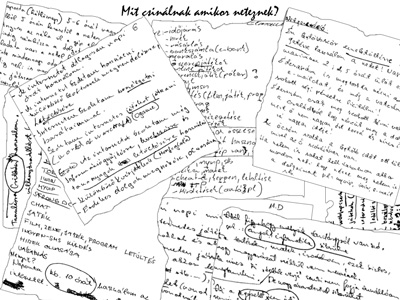E-learning concepts - Table of Content
Net Generation
case study
Survey: 3rd Grade Secondary School Students (2008)
In 2008 an earlier project looked for answers to the following questions, through participants on a course similar to the Tenegen course:
- Is there really a 'net generation' sitting in our classrooms?
- What do we know of their learning and Internet use habits?
- Is it important for teaching that we get to know these habits?
- If we do get to know, can we use make effective use of this in our pedagogical work?
One of the participants a Hungarian IT teacher conducted a survey in his class using the following questions:
- What do you use Internet for, and how much time do you spend for using the net?
- Would you like to use on-line lessons, and which subjects could be best adapted for on-line study?
- In your opinion, are teachers at your school able to develop such on-line course?
Though this was a very informal survey, with children simply writing their answers on slips of paper, there was nevertheless the distinct view that many children become "informal students" through their use of the Internet.
Is there a Net Generation sitting in my classroom?"I was curious to find out what the students of my school think about the 'net generation'. I teach information technology in two 3rd grade classes (this year they learn programming) so I asked the kids in my own class (30 pers) to volunteer their views. Only five families among the 30 children doesn't have Internet access,. The survey cannot be interpreted a representative one, however I got the following result based on the answers given to my questions."
|